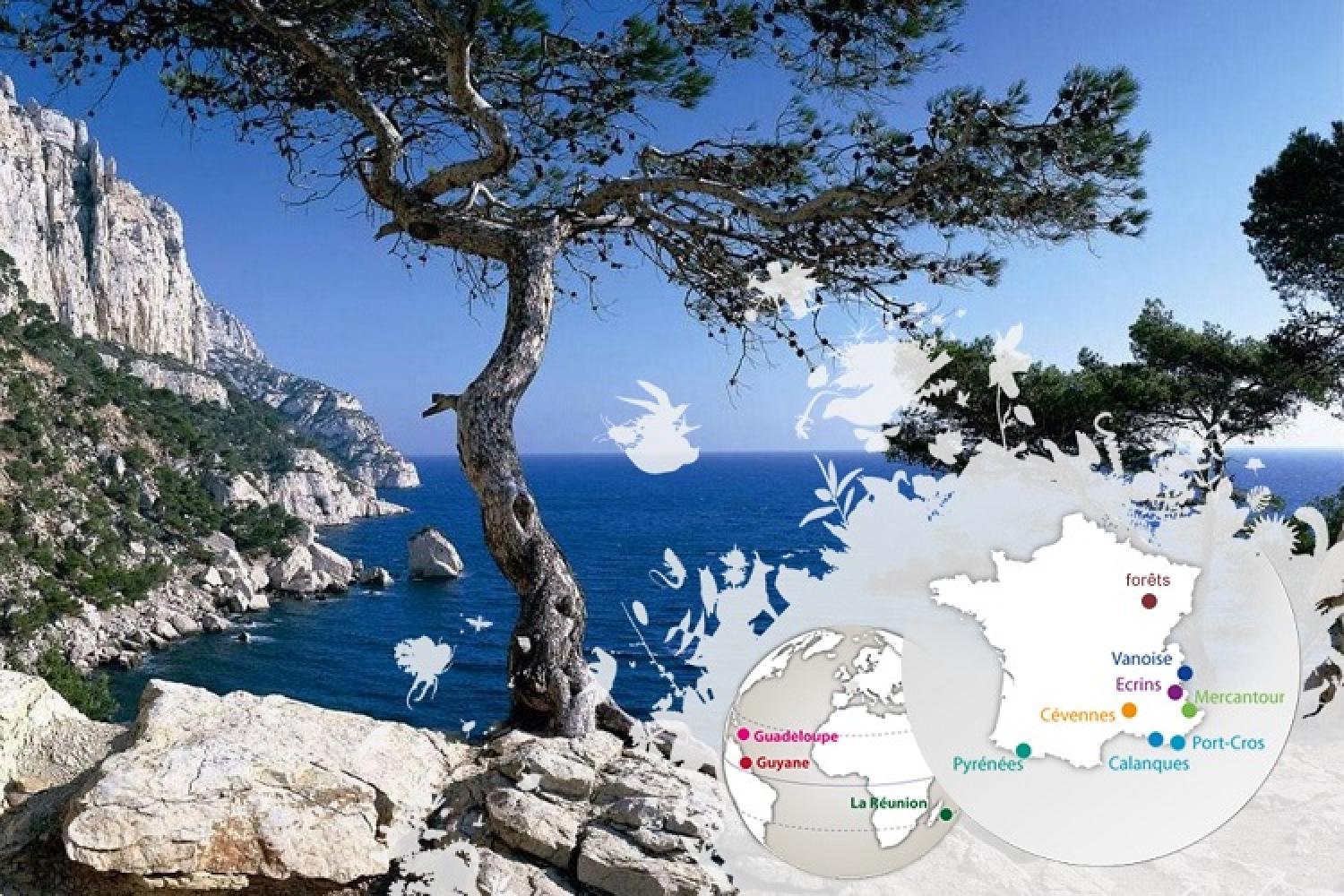Conserving exceptional heritage
A National Park is a territory and a natural area whose landscapes, biodiversity, cultural richness and character are recognised as exceptional by the international scientific community and the State, to the point of justifying its protection and implementing a management that strives for excellence, in order to guarantee its sustainability, for today and for future generations.
A core zone and partnership zone in solidarity
Since an important legislative reform in 2006, French national parks have been made up of two types of areas:
- The "core" zone benefits from heightened protection via specific regulations.
- The "partnership zone" on land constitutes the territory that is in ecological solidarity with the core zone, in which the municipalities voluntarily commit to promoting its sustainable development, with the support of the National Park. At sea, the "adjacent maritime zone" also expresses sustainable development focuses, with the difference that the communes do not have to adhere to them.
Management that strives for excellence
A national park is not only a framework for special protection, it is also and above all a tool that aims for excellence in the management of natural areas. The administrative and financial management is carried out by a public establishment which, under the supervision of the Ministry of the Environment, develops and implements the means to gain knowledge of and protect the natural environment. The board of directors, the central body of its governance, is composed mainly of local stakeholders.
The 11 French National Parks
France has 11 national parks:
- Vanoise National Park
- Port-Cros and Porquerolles National Park
- The Pyrénées National Park
- The Cévennes National Park
- Écrins National Park
- Mercantour National Park
- Guadeloupe National Park
- Guiana Amazonian Park
- Réunion National Park
- The Calanques National Park
- The National Forestry Park
Their actions are coordinated by the French Office for Biodiversity (OFB).


 Video
Video